Build your future through skills and education
The Empowerment Programme provides grants and tailored support to Muslims in the UK, helping them gain essential skills, qualifications, and employment opportunities.
This initiative is designed to break the cycle of poverty and enable financial independence for those in need.
Unlock new opportunities with the Empowerment Programme
Our grants provide you with the essential support to develop your skills and secure a stable future in your chosen field. By focusing on practical training and education, you’ll be empowered to achieve your career goals and gain financial independence. Learn more about programmes tailored to your needs today.

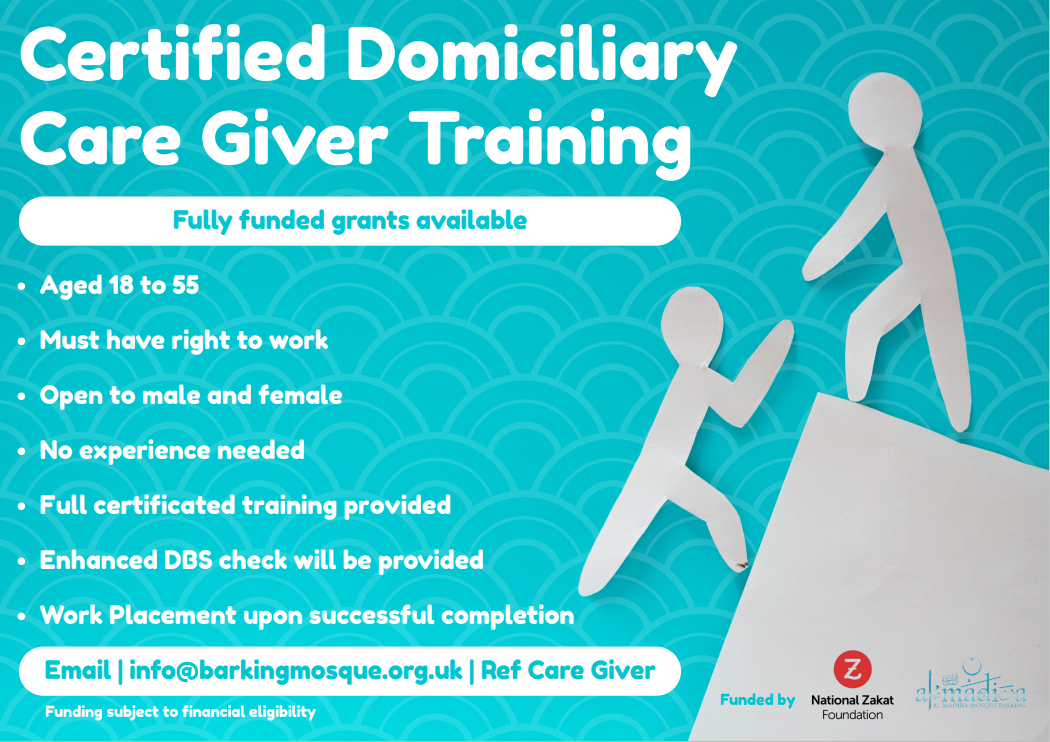
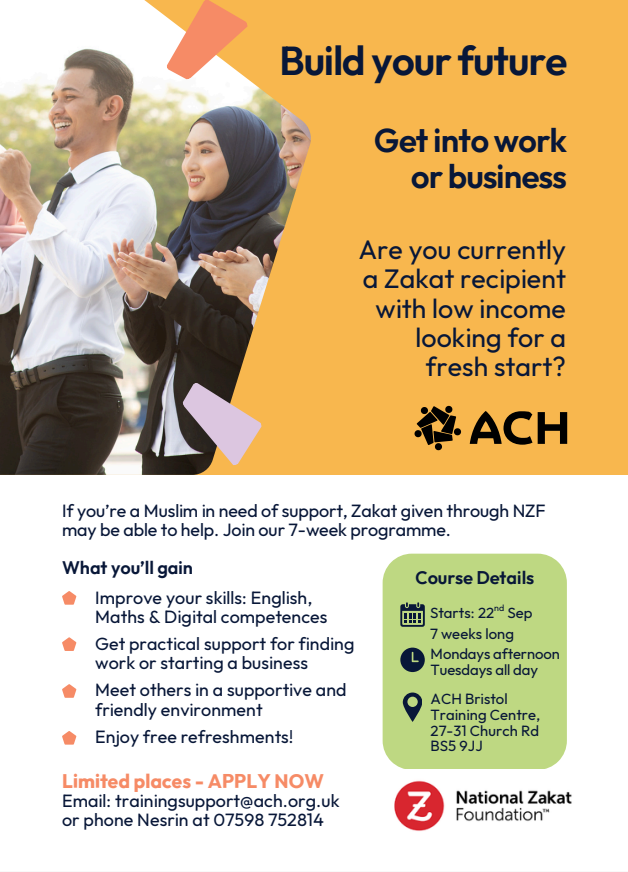
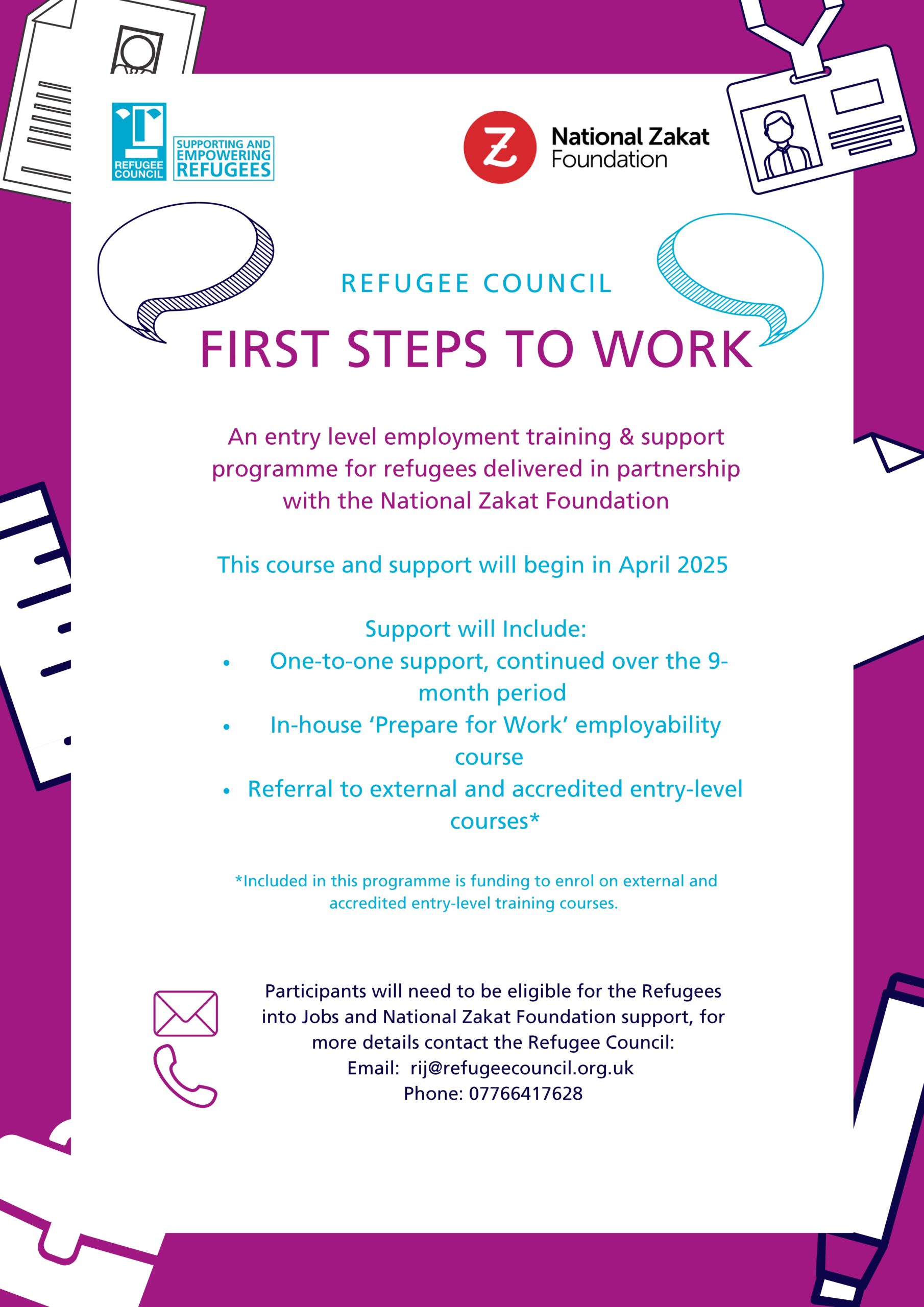
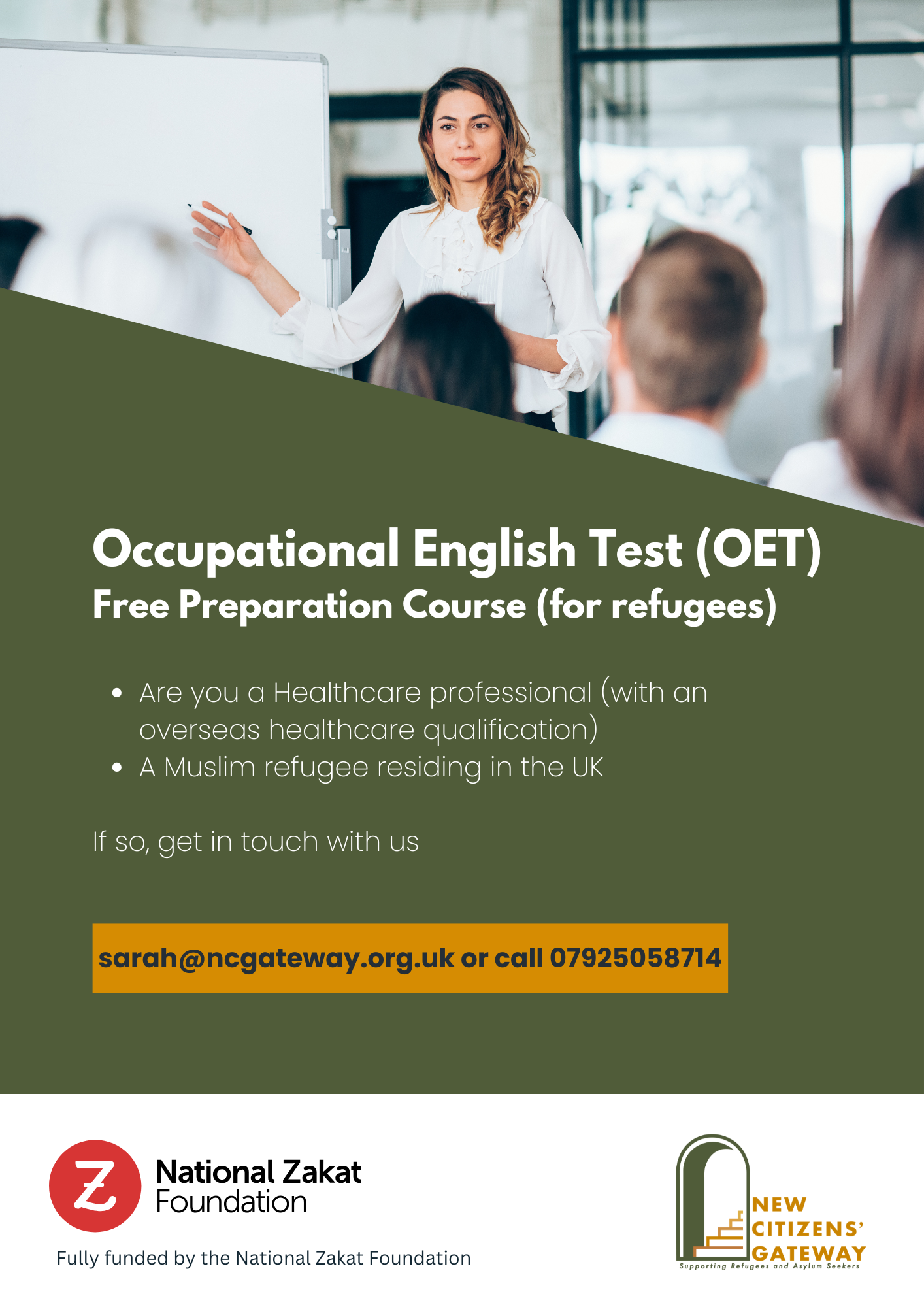
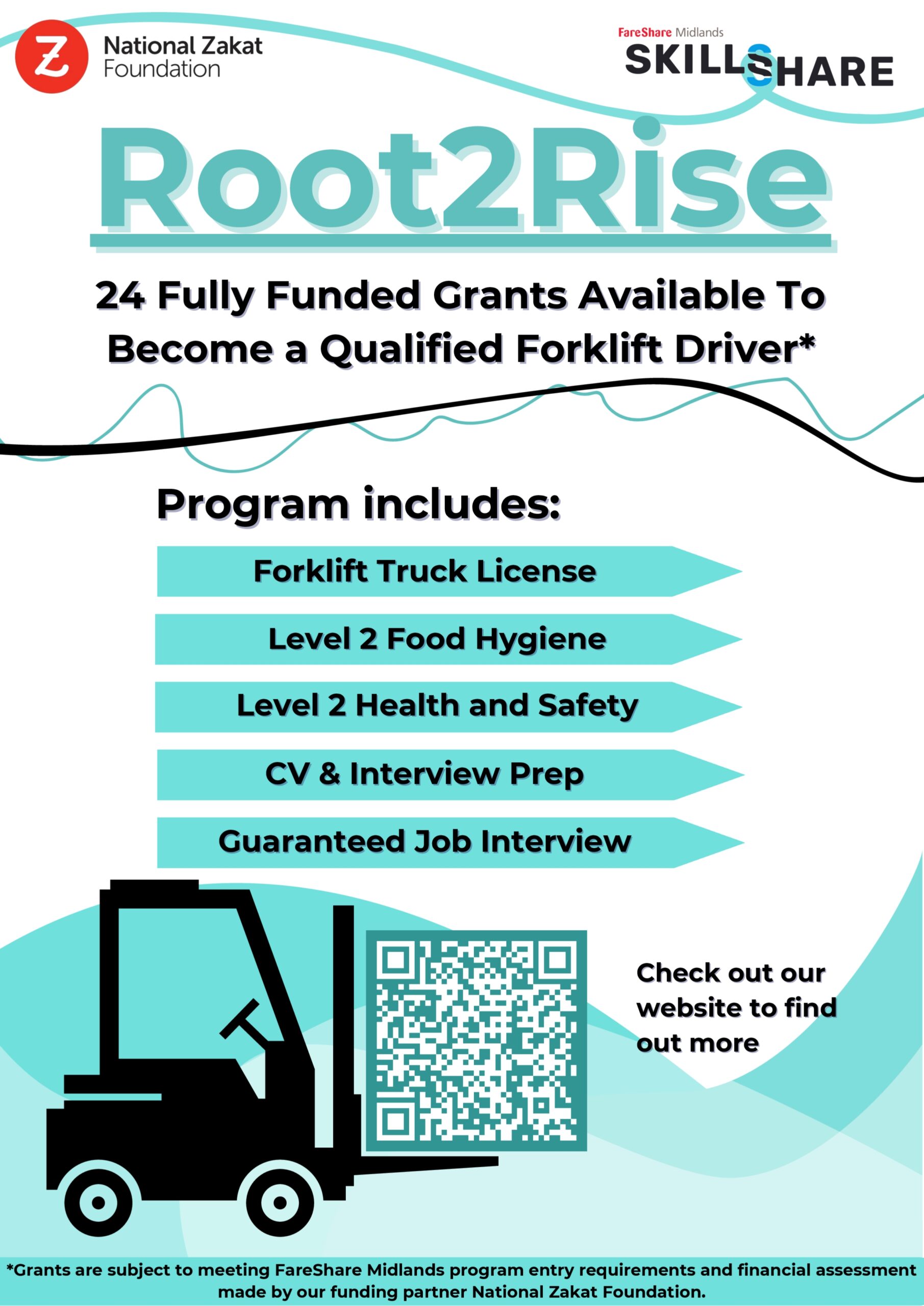



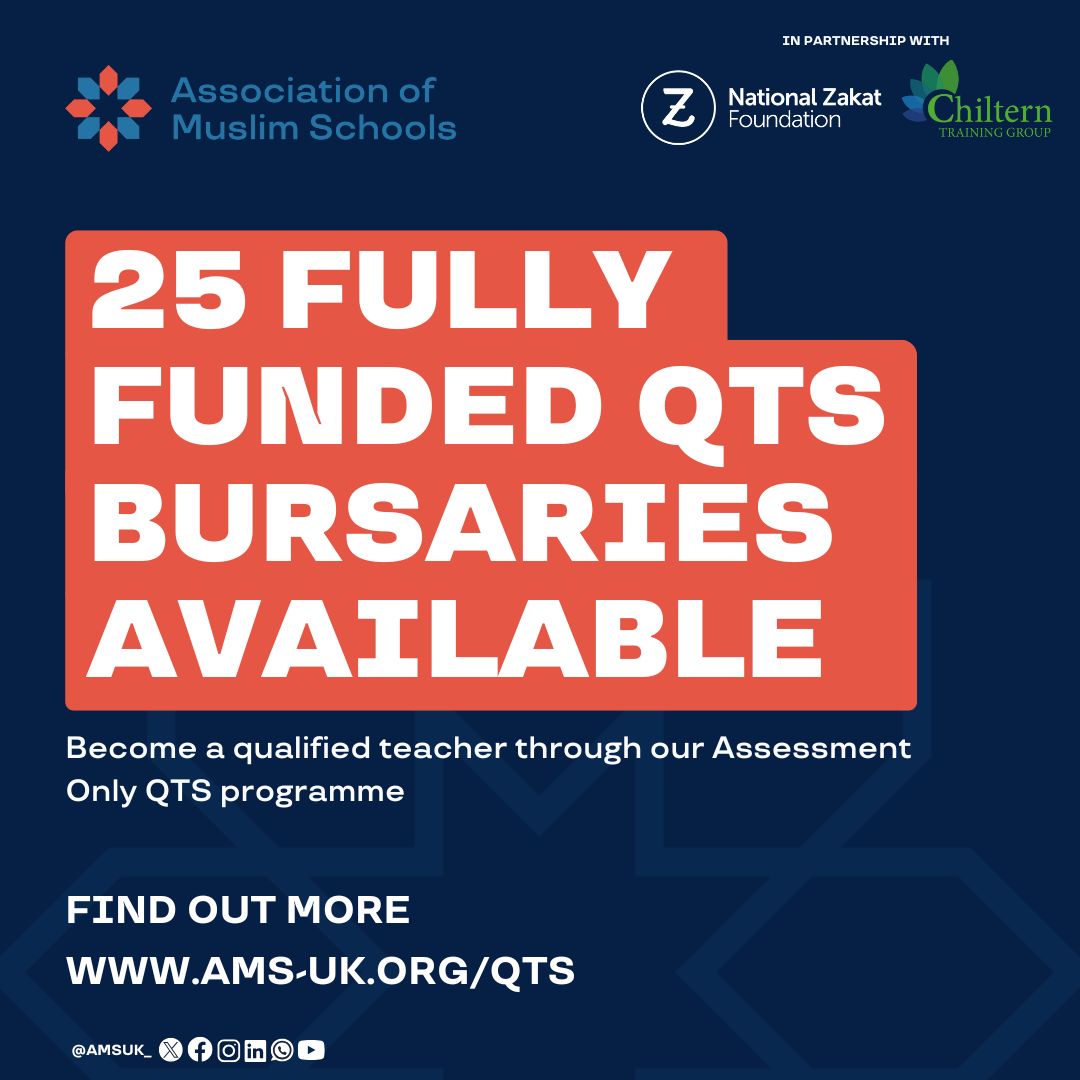
Empowerment Programme FAQ’s
The NZF Empowerment Programme is an initiative by the National Zakat Foundation to empower vulnerable Muslims in the UK by providing financial support and partnering with specialised organisations to deliver skill development and job-readiness programmes to create sustainable financial improvements for recipients.
Association of Muslim Schools (AMS) Qualified Teacher Status (QTS): https://ams-uk.org/training/qts/
Markfield Institute of Higher Education (MIHE) Muslim Chaplaincy Programme: https://www.mihe.ac.uk/muslim-chaplaincy
Holt Green Training – CSCS Construction Green and Blue Card: https://holtgreentraining.co.uk/nzf-fundedcourses
New Citizens Gateway – Overseas English Test for Health Professionals (OET):
https://www.ncgateway.org.uk/services/oet
FareShare Midlands – Forklift Driving and Employability Skills:
https://faresharemidlands.org.uk/root2rise
British Refugee Council – First Steps to Work
The programme seeks to create long-term financial improvements for recipients, enable them to gain skills, become job-ready, and achieve sustainable employment. Break the cycle of poverty by addressing barriers to education and vocational training. Equip individuals to contribute meaningfully to society.
The programme is open to individuals (eligible for zakat) through our partners with a focus on: those lacking skills, including NEETs (Not in Education, Employment, or Training), refugees, women facing unemployment barriers, and university graduates lacking resources to pursue professional qualifications.
Participants must meet NZF zakat eligibility criteria and the basic entry requirements for the selected programme.
Partners are selected through a process of submitting a proposal meeting requirements of an identified skills gap, empowerment officer and senior management review and thorough governance checks. Partners must pass NZF’s due diligence processes, including charity/company checks, financial assessments, and risk evaluation.
The programme includes a monitoring and reporting framework to assess its impact, tracking participant progress, during and after the programme, overall impact on financial stability and job readiness, feedback from recipients and partners to provide transparent outcomes to stakeholders.
Do you still have questions?
If you have any questions that aren’t answered on this page, you can contact us below.